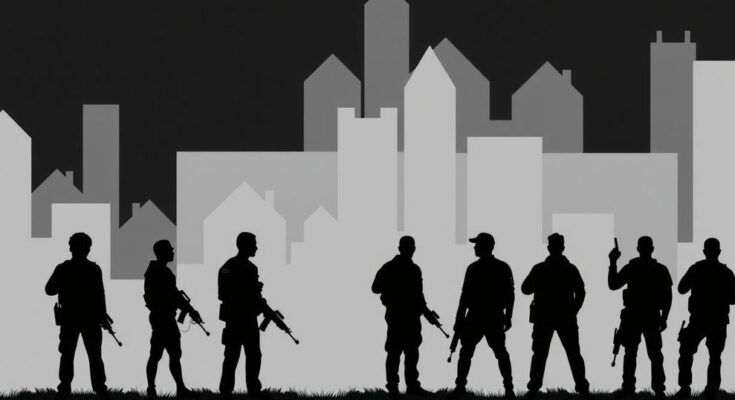President Luis Abinader of the Dominican Republic warns of “drastic measures” if the U.N.-backed mission in Haiti, aimed at addressing gang violence, fails. With gangs controlling 80% of Port-au-Prince, the Dominican Republic feels the impact of the instability, including a significant influx of Haitian refugees. The international police force is currently under-resourced, potentially hindering the mission’s effectiveness. Abinader calls for urgent assistance to establish conditions for elections in Haiti and protect regional security.
In a recent address at the United Nations General Assembly in New York, Luis Abinader, the President of the Dominican Republic, expressed grave concerns regarding gang violence in Haiti and outlined his government’s readiness to implement “drastic measures” should the ongoing U.N.-backed mission fail to stabilize the situation. He did not elaborate on the exact measures he might pursue. Abinader highlighted the alarming extent of gang control in Haiti, noting that they dominate 80% of the capital, Port-au-Prince, a power struggle exacerbated by the assassination of President Jovenel Moïse in July 2021. The ensuing violence has displaced nearly 700,000 individuals, prompting a mass exodus of Haitians seeking refuge in other nations, including the Dominican Republic. He expressed gratitude towards Kenya, which is leading an international police mission in Haiti with approximately 400 officers, complemented by contributions from Jamaica and Belize. However, he emphasized that the force is significantly fewer than the 2,500 troops pledged by various governments, and the U.S. has deemed the mission critically under-resourced as it investigates the potential for a U.N. peacekeeping operation. The Dominican President reiterated the urgent need for the mission to stabilize conditions in Haiti, allowing for fair elections to occur, which have been absent since 2016. “Practically one year from the holding of elections, the conditions are still not in place to do so,” Abinader remarked, highlighting the risk of an imminent collapse of Haiti if current efforts fail. Recent years have witnessed escalating gang violence, including coordinated attacks on governmental facilities, police stations, and even the main international airport. These developments forced a change in leadership with the resignation of former Prime Minister Ariel Henry and the establishment of a transitional presidential council. Abinader shared his concerns over the implications of Haiti’s instability on Dominican security, revealing that his country has disproportionately borne the brunt of the consequences. He noted that 10% of medical visits within the Dominican Republic were attributed to Haitian nationals, and the education system hosts a sizable population of Haitian children. Addressing human rights issues, President Abinader defended his administration’s policies amid accusations of human rights violations towards Haitians and those of Haitian descent living in the Dominican Republic. He asserted a commitment to human rights, while mentioning that the Dominican Republic has achieved a historical low in poverty rates and a decrease in its murder rate. Abinader’s address underscored the interconnected nature of the crises faced by both nations, emphasizing that the challenges instigated by the situation in Haiti demand regional support rather than solitary efforts. The President of Haiti’s transitional presidential council is set to deliver remarks at the U.N. General Assembly following Abinader’s address, marking a critical moment of dialogue concerning the challenges faced by their respective governments.
The precarious situation in Haiti has escalated significantly in recent years due to rampant gang violence, which now controls an overwhelming majority of the capital. Following the assassination of President Jovenel Moïse, a power vacuum led to increased lawlessness, leaving many Haitians displaced and at risk. The Dominican Republic shares the island of Hispaniola with Haiti and has been directly impacted by the spillover effects of Haiti’s instability. The U.N. has intervened by proposing a police mission to assist in stabilizing the situation, which is crucial for resuming the electoral process in Haiti that has been dormant for several years. Regional response to this crisis is particularly pertinent given the economic and humanitarian repercussions on neighboring countries.
In conclusion, President Luis Abinader’s address at the U.N. highlights the Dominican Republic’s firm stance on the necessity of a successful international mission to mitigate Haiti’s gang violence crisis. His declaration of potential drastic measures signifies the urgency of the situation, emphasizing that without effective intervention, not only is Haiti’s future at risk, but it also poses increasingly significant challenges to the Dominican Republic’s own security and stability. As both nations navigate these turbulent waters, collaboration and increased international support remain imperative to enact lasting change.
Original Source: apnews.com




